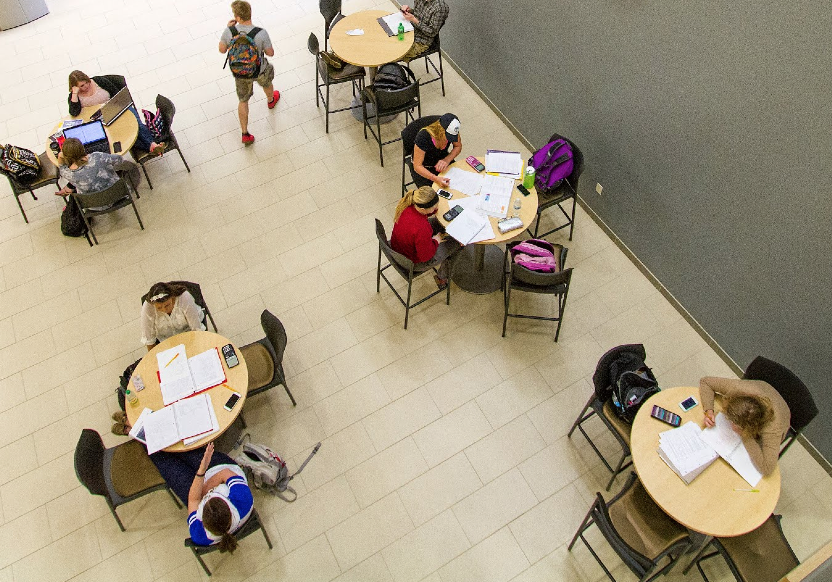Posted 8:37 a.m. Tuesday, May 12, 2015

Take this quick test to see if you are using strategies that best support learning.
 Advances in the science of learning have identified conditions and strategies that best support learning, explains Bill Cerbin, director of the Center for Advancing Teaching and Learning. To test whether you are using the best learning strategies, select A or B, depending on the learning strategy you use.
Advances in the science of learning have identified conditions and strategies that best support learning, explains Bill Cerbin, director of the Center for Advancing Teaching and Learning. To test whether you are using the best learning strategies, select A or B, depending on the learning strategy you use.
You learn better if you . . .
1. A. reread material several times or B. read material once and then test yourself to try to remember what you just read. 2. A. take notes longhand in class or B. take notes on a laptop in class 3. A. study in one long block of time just before a test or B. study in several shorter time blocks on different days before the test. 4. A. multitask by working on two tasks at the same time or B. focus only on one task before moving on to another. 5. A. listen to a presentation that matches your preferred learning style, e.g. if you are a visual learner the presentation would be in a visual format or B. listen to a presentation that does not match your preferred learning style. How did you do? 1. Self-testing is powerful. Rereading is a weak learning strategy. When people reread they become familiar with the material, but familiarity is not the same as knowing. Students learn more and retain it longer by reading and then testing themselves to recall what they have just read. 2. Note-taking works best when you think about the subject matter. What matters during note taking is whether you try to make sense of the subject matter, which happens more often when you write notes longhand. People who use a laptop for notes concentrate on typing the material verbatim, rather than thinking about the meaning of the material. 3. Distributed study leads to long-term retention. Students who cram just before a test may remember much of the material the next day, but will forget most of it within a few days. If you want to learn something well, study more often and space out study periods. 4. Do one serious task at a time. People cannot attend to two tasks simultaneously. Instead you must switch your attention back and forth between tasks. This is equivalent to being constantly interrupted, losing focus on one task while trying to focus on the other. People are poor at task switching. It is ineffective and inefficient. 5. Learning styles don’t matter. Learning styles are educational folklore. Matching presentations and tasks to students’ learning styles makes no difference in terms of how much or how well they learn. If you need some new learning tools, try these. And good luck on final exams. - Bill Cerbin, director of the Center for Advancing Teaching and Learning